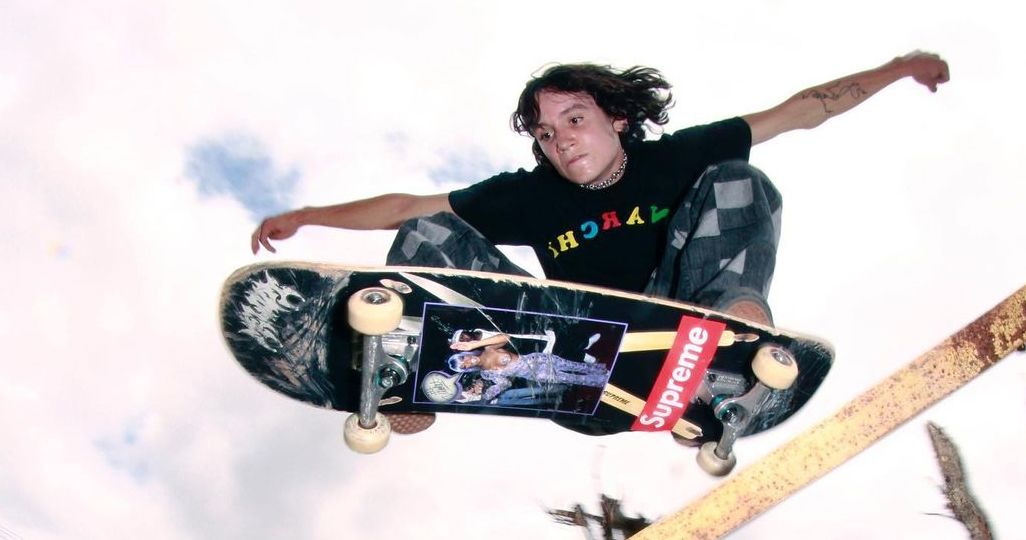
Leo Baker, who was in foster care at the age of 2, skateboarded for the first time. He recalls falling in love with skating right away after seeing his foster brother do it. Baker was a sports-loving kid, but by the time he was seven years old, the game seemed to have “married” him. When Baker discovered that he could play Tony Hawk’s Pro Skater in “career mode” at age 8, it clicked that Baker could pursue skating professionally. The attachment was magnetic, a lift so strong that “I remember feeling guilty for not skating instead” if I were on my vehicle or bike. He continued, “After landing my second kickflip outside, I ran in and told my mother I wanted to skate professionally.” My mother said, “All right, then.” And finally, he did become a master: At the X Games in 2013, 2014, and at the age of 25, Nike SB signed him. He also won three medals. Baker is a trans man who has dealt with discrimination, bigotry, and stigmatization throughout his career, so he had to do all of it on the girls’ teams.
Baker resigned in 2020, the time he made his public transition, after making it to the U.S. Women’s Olympic team by the age of 28. No amount of professional skating success was worth living a “splintered” life, he said in an interview with Time in 2021, adding that “I couldn’t keep putting myself on hold.” “Everyone told me it’s history in the making and to just wait one more year.”
Baker stated after resigning, “I avoid at all costs affiliating with anything that feels like how I used to think in the skate market.” Nevertheless, through his career and the skate company Glue Skateboards, he has contributed to the development of the U.S.’s expanding gay skate scene. Stephen Ostrowski, an actor and fellow skater, and he founded Glue in 2020 because, according to him, “there were no other businesses that made sense for what I wanted.” He imagined a company that gave marginalized people priority, serving as his and his business associates’ “home bases.” He “just wanted it to feel like the homies,” but as soon as it got going, he had to deal with his usual, annoying doubts: “Are you sure?” “No one has ever done it before in that manner.” “We don’t think it will work because the men in charge won’t like you,” the statement reads. He’s now joyfully disproving the skeptics wrong. Baker became the first transgender skater to play on Pro Skater the same year he left Team USA.
He said, “It’s great to see individuals breaking free from the mold they had given us and inspiring others to be who they really are at a much younger age.” “There would be a path to follow, so it would have been fucking great to start skating now.”
For transgender sports, Baker’s experience—the requirement to present an unauthentic identity in order to compete at the highest levels in his sport—is typical. Liberal lawmakers have actively targeted transgender and intersex children over the past few years. For instance, politicians have worked to prevent trans children from playing on sports teams that are in line with their gender identity in red states like Idaho, Florida, Mississippi, and Texas. Also, if they are permitted to compete at all, international sport associations are extremely enacting regulations that force future Olympians into gender binaries. For instance, new rules in swimming, track, and field prohibit transgender sports from competing internationally if they transitioned after turning 12 or used hormone treatment, while the World Athletics Council has prohibited transgender people who have entered male puberty from doing so.
The transgender and queer athletes I spoke with felt their adoption by the Olympics in 2020, which increased the investigation and stigmatization they experienced. Skateboarding has never imposed any obvious barriers on athletes. Alana Smith, a nonbinary National skateboarder, was constantly mistreated by NBC Sports when she had to compete in the children’s road skate in 2020. According to a 2023 review, 67 percent of transgender athletes encounter insults and mockery while participating in sports. Skateboarding is known as a close-knit boys’ club, one that hasn’t changed much since the sport’s inception in the early 1950s, despite the fact that there are more female skateboarders today than there have ever been in skateboarding history (32 percent of all skateboarders, according to the 2021 Skateboarder Representation survey). Every time New York skater Efron Danzig arrives at a skate park, she is typically greeted by several men. She remarked, “It’s difficult to find places without that.” Danzig discovered her friend’s board in the room and began skating when she was ten years old. After about ten and a half decades, she “typically finds herself the only trans individual,” she said, and
she almost often discovers herself alone. Danzig continued, “I’m put off by the skate community, but I want to skate every day, so I’ll glide for as long as my brain will allow.”
However, trans skaters and administrators have been working to balance this disparity in the hopes that more seasoned competitors will provide a sector that is more diverse than the one they started out in. In 2017, Jeffrey Cheung, 34, founded Unity Skateboarding, a printing press and skateboarding business in San Francisco, where they hand-painted boards for their team of gay riders. Cheung, who uses the pronouns he/they, started skating as a girl but stopped doing it soon after high school. He said, “I came out of the closet around the same time.” “I always thought of the two worlds apart, and being queer in skateboarding wasn’t really talked about at all.”
They hadn’t picked up a board afterward until Cheung was 27 years old, when they first encountered other queer and transgender sports at their neighborhood skate park in the Bay Area. Following that, they started posting flyers for gay skate gatherings in Oakland. From that, it snowballed, he said. “We did do our best to support them and publish blade videos from gay athletes all over on our Instagram,” said the statement. The second Unity Fest, a queer- dancing and music extravaganza with punk shows, printing workshops, and dance parties, was held last October as part of Cheung’s project, which today includes more than just the little zine press. It also entails the hosting of skateboarding groups and meetups and events.
Around the same day that Tara Jepsen and Miriam Klein Stahl founded Pave the Way Skateboards, Unity also went live. Cheung believes that incident marked the start of the current queer-knit activity and claims that since then, the landscape has changed for the better. He cites Baker and Elissa Steamer, a gay dancer and skateboarder who became the first person to go professional in city dancing, as well as the support of skate legends Cheung had admired since he was young as examples of high-profile athletes who provide better visibility for LGBTQ+ skating in mainstream skateboarding.
There is still another aspect to the penny, he continued. Now that companies have begun to support just a few gay and transgender athletes, I see so much more hatred and homophobia, Cheung remarked. He continued, pointing to Steamer’s March Thrasher cover, which he claimed enraged the skating haters on social media, “It seems like the same people are also making sexist remarks about women in skating.” Cheung continued, “It’s like a storm of boys feeling like they are being attacked,” after spotting the queer female in the biggest publication of the sport. Blade fans, who noted that Steamer has been one of the sport’s most well-known names since the 1990s, also expressed their gratitude for the long-overdue support at the same time. The response makes it abundantly clear that the blade landscape is evolving, and many people enjoy seeing it.
Consider 29-year-old Kien Caples, whom Thrasher referred to as a “breakout expert” on “a meteoric rise.” In 2017, while visiting companions in Oakland, Caples first met Cheung in man. Caples, who uses the they/she pronouns, moved to Oakland a year after the meeting because it was so intense. They remarked, “I really wanted to be involved.” “I felt incredibly at ease in the setting.” For There Scooters, Cheung’s blade organization that helps queer and trans skaters become professional skateboarders, Caples then skates full-time. You may have seen their videos on Instagram, where people are drawn to them even when they are skating thanks to their bright blue braids, long skirts with flowing lines, and foot covers. Caples properly be building her following from her outfit inspiration as well as her remarkable tricks as she gradually gained recognition for her very individual style. Both skateboarding and garments are about freedom of expression for Caples. They claimed that “fashion has been one of those points outside of skateboarding where I can do whatever I want, feel quite at ease with my body, and then be able to show it to everyone.”
Gay people of all ages are being drawn to skating by the increased awareness of openly trans people in the sport. Due to the large crowds of men, 28-year-old Jeane Robles avoided skating gardens throughout middle college before starting it in school in Iowa. They remarked, “I didn’t feel like my full self, and it was difficult because there weren’t a lot of skate parks there.” In 2019, Robles relocated to Seattle and began attending activities with Skate Like a Girl, an organization that seeks to create an inclusive society for gay, female, and trans skaters through blade sessions and educational programs. In 2022, Rob
les made his second trip. They claimed that “I feel like I could get anything when I go to glide station.” One of the few locations where I’m not afraid to simply exist is probably skate station.
Robles’ domino effect from hopping on a skate allowed them to realize their middle-school aspirations. They said, “I wanted to be a skate- son drummer, emo kid.” Robles founded the group Toxic Tears after learning to drums and skate. “I feel as though I’m currently living my Rocket Power existence, which began with skating.” They claimed that dancing is a life lesson because it allows them to exercise feeling fear and acting on it regardless of the situation, whether it involves making new friends or trying out new tricks.



